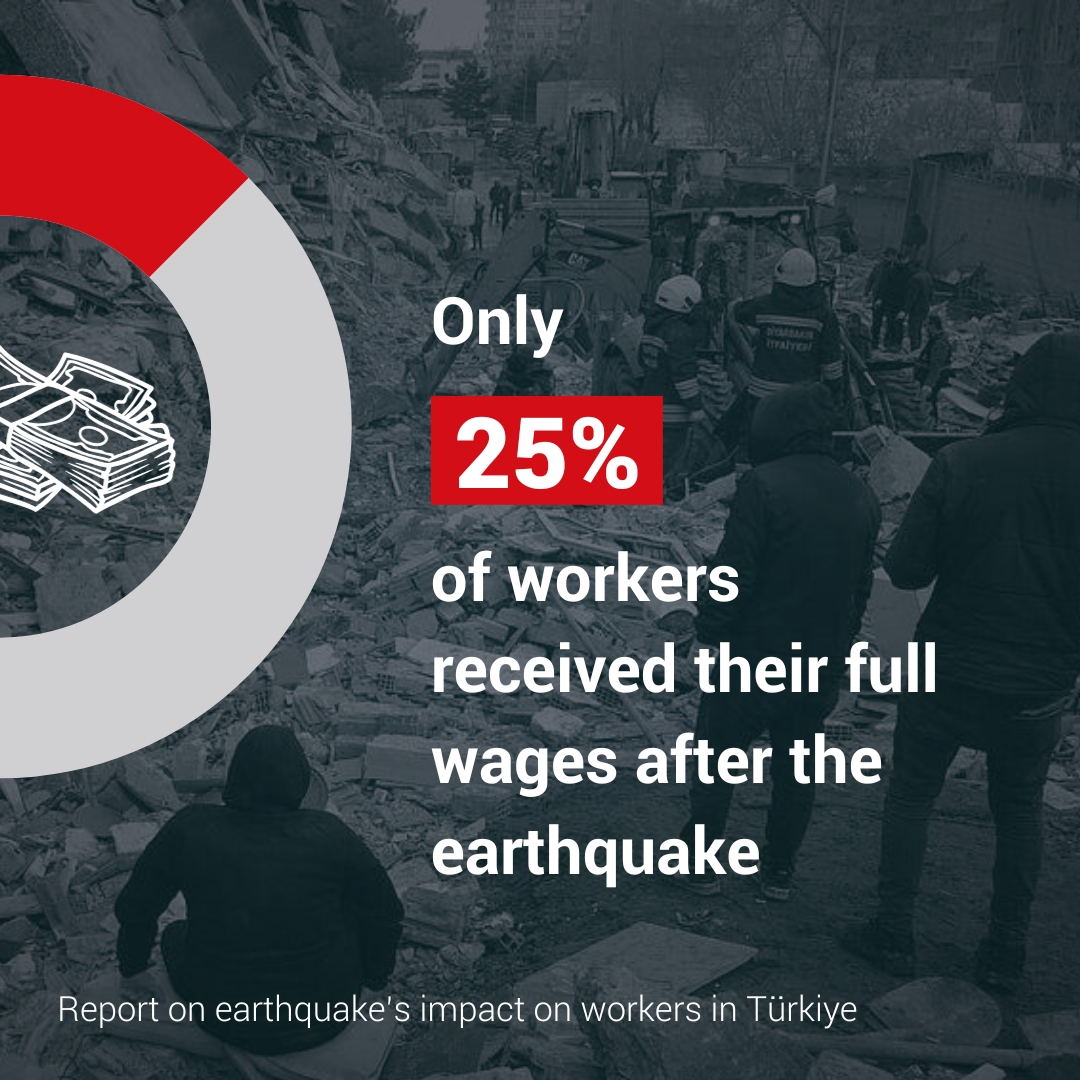
Factories and brands disregarded workers’ rights in the wake of Türkiye’s 2023 earthquake
Interviews with 100+ workers shows that garment factories and their buyers left workers to fend for themselves after the devastating earthquake that hit Türkiye in February 2023. As most of them were not paid in full in the aftermath of the earthquake, workers had to return to their jobs out of financial necessity without having a safe place to live and before the factories they worked in had undergone any structural safety inspections.
The report is based on a survey of 130 workers from the earthquake-stricken cities of Gaziantep, Kahramanmaraş, Malatya, and Adıyaman, conducted in between August and September 2023. It confirms and expands on the findings of a previous survey of garment and textile employers by the Middle Eastern Technical University in Istanbul in August. The new report echoes the March 2023 appeal by Clean Clothes Campaign, as part of the Pay Your Workers coalition, urging brands sourcing from Türkiye to ensure the workers in their supply chains are kept safe and their rights are respected.
The report describes adverse working conditions faced by earthquake victims, such as unsafe workplaces, low wages, and routine verbal harassment. While some of these issues were already prevalent before the earthquake, their impact was compounded by the natural disaster. Factories prioritised the need to finalise orders for their international buyers over the well-being of their workers and called workers back to work shortly after the earthquake, often before checking factories for structural integrity (over 50% of workers report that there was no inspection of the factory building). Financial difficulties caused by a cut or discontinuation of wages (35% of surveyed workers received no wages at all) meant that workers felt forced to heed the call to return to the factory before addressing their housing and psychological needs. This was further exacerbated by factory managers threatening dismissal or withholding aid from workers should they not return. Workers who were unable to return to the workplace often lost their rights to terminal compensation they had been accruing for years in some instances, because factory managers considered them to have “resigned”.
One of the surveyed workers stated: “I had to take my children out of the city, but I reluctantly returned for bread money”. Another worker said: “My supervisors called me, and they said if I don't come, they won't deposit the earthquake aid.”
The report calls upon employers in the garment and textile sector in Türkiye and garment brands around the world to ensure they are prepared for future disasters, including the floods and storms expected to result from climate change. This would have to include absolute commitment to worker safety, including inspection of potentially damaged buildings before they are taken in production again; financial protection for workers who are unable to come to work, including ensuring their right to termination benefits; and addressing verbal harassment and mobbing in factories.
For garment brands it is additionally vital to keep sourcing relations intact in the wake of a disaster and proactively take responsibility for the situation of the workers in the supplier factory by ensuring continued wage payments and providing flexibility on outstanding orders. Lastly, the earthquake showed the need for a binding agreement between brands and unions to ensure workers receive their severance and other termination benefits at a time of crisis.
Bego Demir of Clean Clothes Campaign Turkey and one of the authors of the report says: “The February 2023 earthquake clearly shows that workers' well-being is not protected by existing global agreements and compromises. There is a need for new agreements and solutions specific to crises, like an earthquake. The Pay Your Workers agreement stands as such an option.”
The Pay Your Workers – Respect Labour Rights agreement provides such a legal framework in the form of a severance guarantee fund and legal safeguards for workers’ right to organise, which are vital at a time of crisis. It is high time for brands to take their responsibility to ensure that the burden of future crises is not primarily borne by those who are already hit hardest.